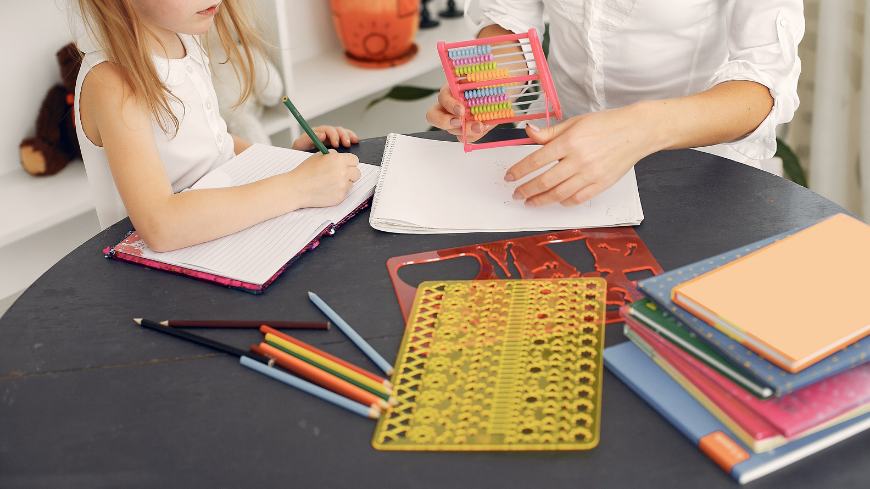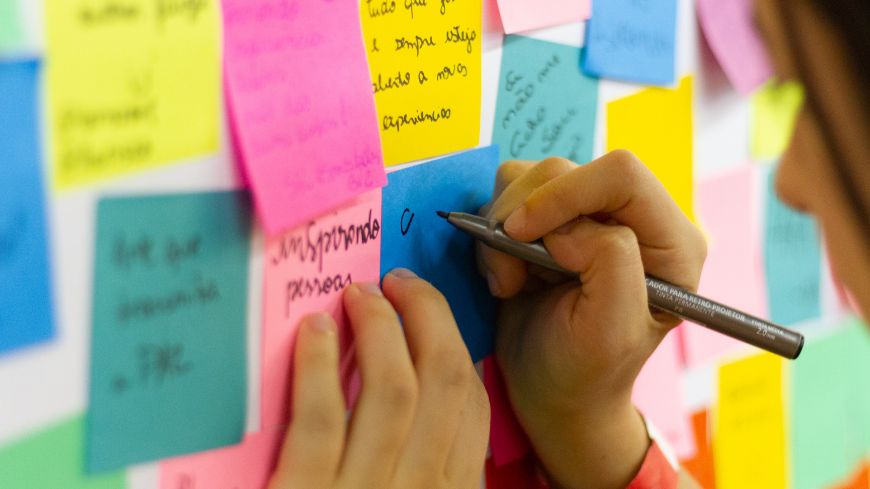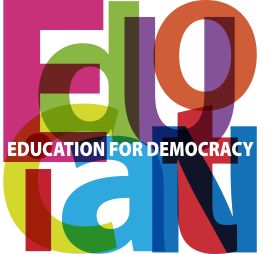Educational initiatives of Member States

Dedicated websites

The Federal Ministry of Education, Science and Research (BMBWF) has set-up a dedicated Webpage to provide information on education related issues for Ukrainian students, as well as important points of contact for higher education students.

The Government in Bulgaria has set up a Webpage to help Ukrainians arriving in Bulgaria with a dedicated subsection for Education in Ukrainian, Russian, Bulgarian and English where information and learning resources to support learners, teachers as well as language acquisition have been published on the Website.

The Government in Croatia has set up a Webpage to help Ukrainians arriving in Croatia with a dedicated subsection for Education in Ukrainian with specific guidelines on how to enroll students in kindergarten, primary and secondary schools. Preparatory language classes will be offered to all Ukrainian students. As persons under temporary protection, these students have the same rights to higher education as Croatian students.

Students and academics can now access information on Czech institutions and research organizations, as well as scholarships and internships, via these websites: https://www.studyin.cz/ukraine/, http://researchin.cz.
For students and parents the website offers important information on the Czech education system.

Information about education in Estonia and guidelines for children and youth from Ukraine in Estonia can be found in English and Ukrainian on the website of the Ministry of Education and Research of Estonia.

A dedicated Website for undergraduate, graduate and adult learning programs in Denmark

A dedicated Website for higher education students to study and research in Finland

Dedicated Website under the Ministry of Education compiling relevant information

Dedicated website providing information for citizens from Ukraine arriving in Iceland

Dedicated website with relevant information for Ukrainian refugees and citizens in three languages

Information and materials regarding the education of children, pupils and students from Ukraine are available online on the dedicated website of the Ministry of Education, Science, Research and Sport of the Slovak Republic.
Information and materials on the education of children of foreigners are available on the website of the National Institute for Education

The Government of the Republic of Slovenia provides information to refugees from Ukraine on the Support for Ukrainian Nationals in Slovenia website, where information on the integration of children and students in the Slovenian education system is available in English and in Ukrainian.

The Spanish Ministry of Education, Vocational Training and Regional Governments have set up informative websites and educational resources in Ukrainian or Spanish. More information can be found on the links below:
- Información de interés para desplazados ucranianos. Ministerio de Inclusión, Seguridad Social y Migraciones )
- Solidaridad valenciana con Ucrania - Generalitat Valenciana (gva.es)
- Cataluña con Ucrania. gencat.cat
- Plan de integración de desplazados de Ucrania | Comunidad de Madrid
- Información sobre ayuda a Ucrania - Інформація про допомогу Україні | Consellería de Cultura, Educación y Universidad (xunta.gal)

Swedish authorities have a collective website with all kinds of emergency information and within it, a dedicated website for those arriving to Sweden from Ukraine. This site is available in English and Swedish. The website leads to other useful internet sites, among others about accommodation, health care, financial support, and schooling.
The Swedish National Agency for Education has a website leading to several underpages describing Ukrainian refugee children's and adults' rights to education and general aspects regarding newly arrived children's rights to education. The main page is in Swedish, but most of the underlying pages can be accessed in Swedish, English, Ukrainian and Russian, depending on the content and whom the site is for. The main site is accessible here.
The Swedish National Agency for Education also has a website with information about the Swedish education system in different languages, among others in English, Ukrainian, Russian. The information is intended to help newly arrived migrants meeting the Swedish education system for the first time.
The Swedish National Agency for Education also has a website dedicated to those speaking Ukrainian or Russian and Swedish or English and are interested in helping children and young people who have fled to Sweden from war-torn Ukraine at schools. This site is accessible in Swedish, English, Ukrainian and Russian.
The Swedish National Agency for Education also has a dedicated website for refugees from Ukraine on how to engage in studying according to the Ukrainian curriculum. This site can be accessed both in Ukrainian and Swedish.

Solidarity action

Currently working on an Action Plan to define the mechanism and procedure on how to integrate gradually students of the Pre-university sector.

Higher Education Conference adopts joint declaration of solidarity
All members of the Higher Education Conference - and thus the central representatives of the Austrian university and higher education sector - jointly declare their unreserved solidarity with Ukraine, its population, but above all with the Ukrainian university and higher education staff. The members of the Higher Education Conference will do their utmost to contribute to peace through academic exchange, dialogue, support and cooperation.
Tuition fee exemption for Ukrainian students in force
In order to provide Ukrainian students with fast and unbureaucratic help, the The Federal Ministry of Education, Science and Research (BMBWF) has amended the Tuition Fee Ordinance. As third-country nationals they would normally have to pay €726.72 per semester, twice the standard amount. Under the amendment to the Tuition Fee Ordinance, which came into force on 10 March 2022, they are now expressly exempt. If necessary, this regulation can be extended.
This regulation applies to the 2,295 Ukrainian students who are currently already enrolled at one of the 22 public universities or 14 university colleges of teacher education in Austria and also to new Ukrainian students who come to study at one of these universities because of the war in Ukraine.
ENIC NARIC Austria, the national information centre for academic recognition, will support displaced Ukrainians with academic qualifications by fast-tracking and prioritising their applications for recognition

Ministry of Education, Youth and Sports of the Czech Republic has allocated a budget of 6 million euros for the education of Ukrainian students. Separate groups have also been created for students enrolled in general secondary education, which allows them to easily adapt to the new educational environment

Estonian EdTechs are providing digital solutions to Ukrainian children free of charge and several Estonian EdTech companies have already translated their digital learning platforms, games and tools into Ukrainian. The list of Estonian EdTechs is constantly updated and the information can be found on the EdTech Estonia website.

1. According to the decision of the Government of Georgia, as a result of invasion in Ukraine, schoolchildren who are unable to continue their general education in Ukrainian schools and express a desire to continue their education in Georgia will be enrolled in schools in a simplified manner. According to the data shared by the Ministry of Education, 215 students of different ages have already been enrolled in Tbilisi and the regions.
2. Resource Officer Service of the LEPL Educational Institution of the Ministry of Education and Science of Georgia offers psychosocial counselling services to school-age children and adolescents from Ukraine who have arrived in Georgia. The psychosocial service centres are situated in 10 locations throughout Georgia and there is a 24-hour hotline on the premises of the Psychosocial Service Centres, which aims to provide timely and immediate psychological counselling and assistance, in conjunction with providing the service beneficiaries with the necessary information. For individual and group consultations, please contact the hotline on the following number: 08 00 00 00 88.
3. A Ukrainian-speaking sector will be opened for students from Ukraine in Tbilis in order to enable Ukrainian students to receive education in their mother tongue. The Ministry of Education and Science is already working on this project.

Spain has approved a Comprehensive Educational Assistance Contingency Plan for Ukrainian students, as an annex to the National Plan in response to the consequences of the war in Ukraine (Order PCM/258/ 2022).
As of April 2022, more than 11,000 minors of school age have been enrolled in the educational system. In some cases, schooling has also been facilitated through bilingual information on websites, the creation of educational materials, as well as through the reinforcement of educational integration instruments such as liaison or Spanish language classrooms, support staff and collaboration with the tertiary sector. Regarding this issue, the Ministry of Education and VET has announced 200 vacancies for Ukrainian language assistants to support the integration of children displaced from Ukraine during the year 2022 into schools.
Legal amendments have also been approved to facilitate the recognition of foreign non-university studies and qualifications and speed up the approval procedures for displaced persons subject to temporary protection.
In the Regional Governments with the highest rates of displaced people, adult education is being strengthened, especially Spanish language education for foreigners, in collaboration with Cervantes Institute and with tertiary organisations. Many of the Regional Governments have already planned specific programmes for this issue.

Teaching resources and enhancing of teacher’s capacities to cope with emergency situations

Information, methodological advice and study materials in different languages, in particular in Ukrainian, can be found in different languages on the website of Education and Youth Board of Estonia.

A compilation of resources on Eduscol for teachers on how to welcome children coming from Ukraine and how to talk about the crisis with students

The Swedish National Agency for Education has a website with information about support for schools and principals receiving newly arrived children and students. The support was enhanced and expanded during the refugee flows in 2015 and that support is now being developed with a special focus on receiving students from Ukraine. The website is in Swedish.
The Swedish National Agency for Education also has a website about the Ukrainian school system that principals and schools can take part of and information about the Swedish school system will be translated into Ukrainian. The website is in Swedish.
According to the Swedish Education Act, primary and secondary schools must assess newly arrived pupils' previous schooling, language skills and other experiences. Newly arrived students are entitled to some specific support, for example: introduction classes, Swedish as a second language, study guidance in their mother tongue. The Swedish National Agency for Education has developed a material for assessing the newly arrived pupils’ general knowledge and knowledge in different school subjects. The assessment is carried out in three steps. In the first step the pupil’s language and experience are assessed. It is worth noting that the language assessed is the language the student uses on arrival to Sweden. The second step is for assessing literacy and numeracy and this step is available in several languages. The third step is used to assess the knowledge in the different school subject. To access this material, the schools need a login provided by The National Agency for Education. The website is in Swedish.
Trauma conscious care: Save the Children, in cooperation with the Swedish National Agency for Education, is carrying out an education for staff in schools in order to support students, often newly arrived, who have been subjected to pressures and traumatic experiences. The websites are in Swedish (available here and here).

Help for teachers and families to talk to pupils about Russia’s invasion of Ukraine and how to help them avoid misinformation. - The Education Hub (blog.gov.uk)

Additional resources and information on education in times of crisis
Scholars at risk
Inter-agency Network for Education in Emergencies (INEE)
- Ukraine Crisis Resources
- INEE minimum standards
- How can we promote resilience in youth during and after conflict? Lessons from Mindanao
- The MHPSS Minimum Service Package
- Non-formal Education for Adolescents and Youth in Crisis and Conflict: a Proposed Taxonomy and Background Paper
- Strengthening Policies for Teachers in Crisis Contexts: Promising Practices and Lessons Learned in Refugee Hosting Contexts
- Teacher Wellbeing in Crisis Contexts - sharing good practice, lessons learned and opportunities for change
USAID Education Links
USAID Education in Crisis and Conflict Network
UNICEF



